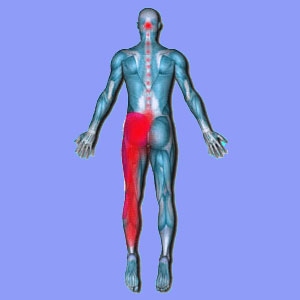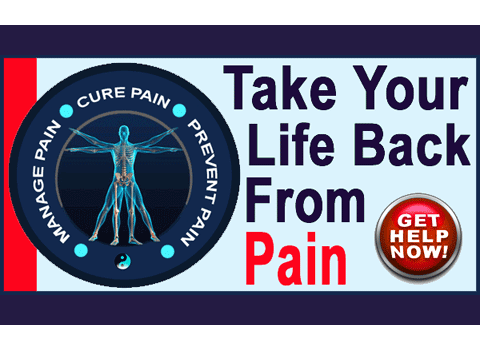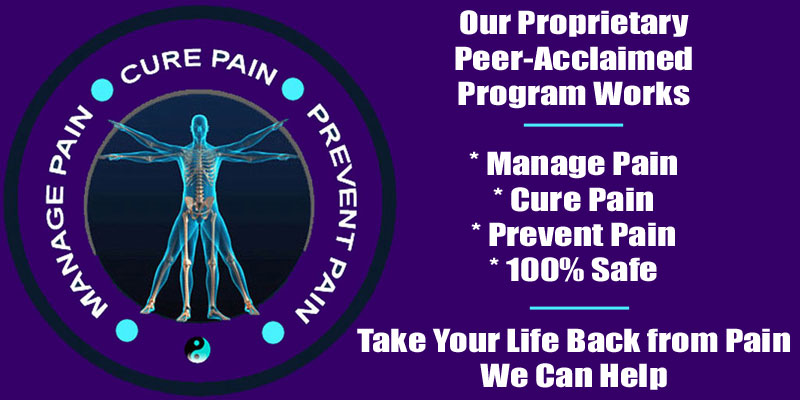
Ischemic sciatica is defined as symptoms which occur due to a reduction in the normal circulatory processes. Every cell in the body requires oxygen in order to function properly and when blood flow is decreased, some types of cells begin to suffer almost immediately.
Sciatica is a condition with a fearsome reputation for resisting all attempts at treatment. However, this reputation is greatly misunderstood. Sciatica is often very difficult to resolve, but not usually because it is impervious to medical care. Sciatica typically endures because many patients are misdiagnosed and given no hope for a cure, since their therapies are directed at a mistakenly identified spinal source. No actual source of symptoms is misdiagnosed more often than regional ischemia.
This article will explore how blood deprivation can cause ischemic sciatica in many patients. Ischemia can be enacted by disease processes, circulatory issues or through the direct command of the mindbody interactions.
Ischemic Sciatica Definition
Ischemia is the root cause of some chronic back pain syndromes, despite the common misdiagnosis of structural reasons for the pain. Ischemia is a virtually invisible process which leaves little evidence of its sinister presence, except for trace elements in the nuclei of victimized cells. However, this process can be instrumental in creating pain all over the physical body, either due to an anatomical or psychosomatic source.
This evidence is not surprisingly also found in patients who have been diagnosed with fibromyalgia. Ischemia is defined as simple oxygen deprivation. All cells need oxygen to survive and when they are deprived of this necessity, they display the symptoms we find in the majority of back pain syndromes.
Ischemia Symptoms
At low levels of oxygen deprivation, the first tissues to be affected are the nerve cells. Neurological symptoms, such as radiating pain and tingling, can be the first indications of the start of the ischemic process. Continued ischemia will enact numbness and/or more severe pain and eventually weakness in affected areas.
Higher levels of ischemia will involve the muscular tissues, as well as the ligaments and tendons. These tissues are hardier than the nerve cells and are better equipped to fight off this purposeful oxygen starvation. However, once affected, muscle pain and stiffness will begin and might be severe. If the condition continues, there is a good chance that muscular spasms will occur and we all know how torturous these can be.
Ischemic Sciatica Causation
Ischemia can be the result of a physical injury or disease process. There are certainly many anatomical reasons why blood is not allowed to circulate to certain areas of the body. However, these are usually easily discovered and successfully treated by doctors.
The ongoing ischemic syndromes which cause sciatica, and most chronic bodily pains, are not the result of some injury or degeneration, but instead are caused by the subconscious mind. This is a process of distraction, which is created as a defense mechanism by the internal emotional self. The reasons why patients suffer these pains vary from individual to individual, but are most commonly linked to stress, as well as repressed emotions, thoughts, feelings and unresolved psychological issues.
Ischemia is also the culprit behind a wide range of psychosomatic conditions which have also typically displayed a treatment resistant nature, including some versions of the following diagnosed conditions:
Headaches
Ulcers
TMJ/TMD
Carpal tunnel syndrome
Fibromyalgia
Gastrointestinal concerns
Plantar fasciitis
Joint pain
Prostatitis
Sexual dysfunction
Urinary tract issues
Paroxysmal hypertension
Allergies
Skin conditions
The list goes on and on.
For more information about the psychoemotional reasons behind most ischemic pain syndromes, please read my psychosomatic sciatica section. You can also enjoy unrivaled coverage of all manner of ischemia syndromes in my best selling book, Cure Back Pain Forever. Ischemia treatment is one of the major concepts in our proprietary pain relief program. To learn more about the physical sources of limited circulation, speak to your doctor.
Ischemia Suffering
The chances of being diagnosed with mindbody ischemia-related sciatica are very low, but the percentage of you actually suffering from the condition is very high. Medical science is simply not enlightened when it comes to the interactions of the mind and body in the back pain arena. Sure, doctors acknowledge this exact causation in some anatomical conditions, but deny it in others. It simply makes no sense.
Ironically, many of the symptomatic sciatica treatments, such as heat or exercise are designed specifically to bring more blood, and therefore oxygen, to the painful region. This is the only reason they are effective, but somehow this fact is lost on most doctors and patients alike.
You really can’t blame doctors. They are simply products of their educational backgrounds and medical schools just do not focus enough effort on the mindbody process. At least this is changing quickly, since new doctors have received a far more comprehensive education when it comes to the existence of mindbody disorders. This explains why treatment for these conditions is now an inherent component of every cancer care center, chronic pain facility and drug treatment institution.
Remember, mindbody ischemia can be completely resolved by the patient with no medical attention in many cases. All it takes to end it is exposure to some effective sources of knowledge therapy. Remember too, that the back pain industry is a multi-billion dollar medical sector and one of the most profitable specialties in healthcare.
Do you think that recognizing ischemic sciatica as the primary source of pain in some patients would affect this business? That is an easy one to answer. I think you can see why medical science is not likely to accept ischemia as the actual causation of many back and leg pains, due to the economic ramifications that would cause.
Is this a critical and cynical view? Sure. Is it also the truth? Sure.
The scope of this article is truly mind over body. However, if you listen to the advice of many less enlightened doctors, you will learn a completely different philosophy: Money over mind.






